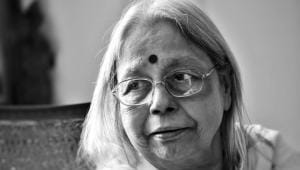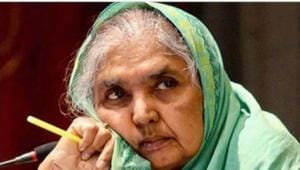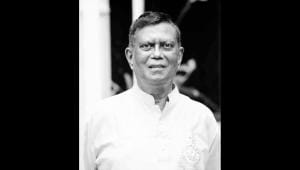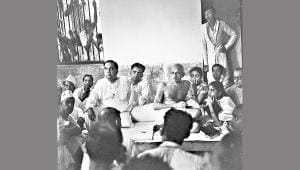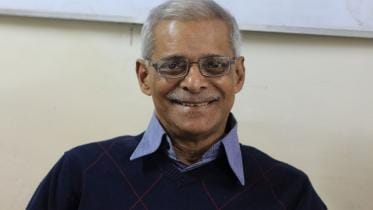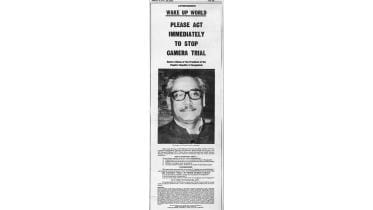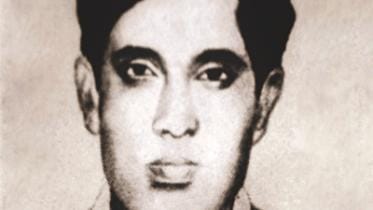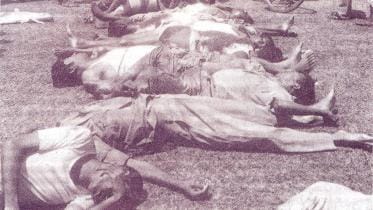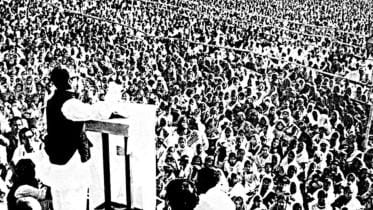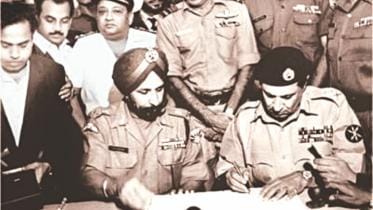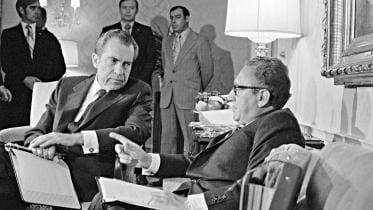Freedom fighter Tariq Ali: A man of great heart
With the sad demise of Ziauddin Tariq Ali, a colourful personality of the generation of Muktijoddha, a life-long crusader of secular liberal nationalist values of the liberation struggle has left the arena of history.
18 September 2020, 18:00 PM
Looking back at the 50 years of Bangladesh Mahila Parishad
With the whole world entangled in the coronavirus pandemic, we have no other option but to shut down all work and fight to contain the deadly disease.
3 April 2020, 18:00 PM
Bangabandhu and Bangladesh: Breaking the shackles of post-colonial order
Two big celebrations are knocking at our doors: one is the birth centenary of the Father of the Nation, Bangabandhu Sheikh Mujibur Rahman, in 2020, to be followed by the fiftieth anniversary of the emergence of Bangladesh in 2021.
15 December 2019, 18:00 PM
Why were they targeted?
On December 9, 2018 the world observed the 70th anniversary of the adoption of Genocide Convention. That particular day has
13 December 2018, 18:00 PM
Blueprint for genocide
The planning and execution of genocidal brutality in history is marked by efforts to wipe out traces of such acts but surprisingly,
24 March 2018, 18:00 PM
Now a part of world heritage
People of Bangladesh know very well the intrinsic value of the historic speech delivered by Bangabandhu Sheikh Mujib on March 7, 1971. A country of the South and its leadership in the struggle for national emancipation has too often been presented through the prism of the North, the power base of most things on earth.
6 March 2018, 18:00 PM
Pakistani Viewpoint: Killing of Bengali Intellectuals
From December 10, 1971 with active support of the Pakistan Army the young members of Al-Badr, the secret killing squad of Jamaat-e-Islami, started its operation to pick up the leading intellectuals of the country and confine them in
14 December 2017, 10:01 AM
The Killing of Intellectuals in the Shadow of Henry Kissinger
Henry Kissinger meticulously evaded the tragic events of the then East Pakistan. His strange diplomatic move deferred and delayed the surrender of Pakistan Army, and paved the way to the brutal killing of intellectuals on December 14, 1971.
13 December 2017, 18:10 PM
How February 21 became 'Ekushey'
February 21, 1952 became a date deeply rooted in the heart of the Bangali people. This is a day of great national significance which got universal recognition as the Mother Language Day now being observed globally under the umbrella of UNESCO.
20 February 2017, 18:00 PM




